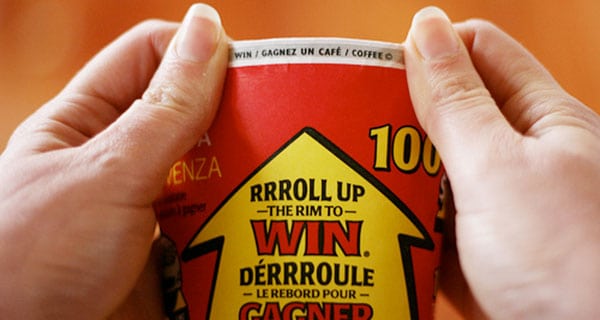 Restaurant Brands International’s (RBI) less-then-convincing results in the last quarter suggest the company’s turnaround isn’t working – at least not yet.
Restaurant Brands International’s (RBI) less-then-convincing results in the last quarter suggest the company’s turnaround isn’t working – at least not yet.
Overall sales were up slightly but the drop in same-store sales of about 0.6 per cent caught many by surprise. For stores outside Canada, same-store sales dropped a whopping 2.6 per cent, compared to 0.4 per cent for Canadian stores.
RBI blames the Canadian dollar, franchising turnover issues and extra supply chain recalibration costs for their missed mark. Frigid winter conditions across the country may also have been a factor, according to RBI.
But problems are much more deep-rooted than that. RBI owns two other restaurant chains, Burger King and Popeyes Louisiana Kitchen. Burger King’s comparable sales increased 2.2 per cent and Popeyes’ sales increased 0.6 per cent. Both represent a significant contrast to the Tim Hortons situation.
And while Tim Hortons appears to be dealing with some unforgiving headwinds, McDonald’s and Starbucks are still doing quite well, despite the weather, currency or any other “uncontrollable factors” that RBI can cite.
The uptake on the Roll Up the Rim to Win campaign was much lower than anticipated by the fast-food giant. Even though Tim Hortons went out of its way to give more prize incentives, the campaign did poorly.
But as more people criticized the chain for its fascination with cups that can’t be recycled, the company may have received the wake-up call it needed to reboot the program.
Tim Hortons now says it aims for a more seamless digital integration for its campaign next year. The change is at least five years too late. The damage to the promotion may be tainted by RBI’s stubborn refusal to change. Environmental stewardship has more market currency than ever, especially when packaging and promotions are involved. The Roll Up the Rim campaign checked both boxes in a negative way.
Changing the nature of a campaign like Roll Up the Rim isn’t easy but doing nothing is much more costly, as RBI is figuring out. Undermining the will of consumers to make an environmental difference is more than ever a non-starter.
Grocers are moving in the same direction. Metro announced a few weeks ago that it will allow customers to bring their own plastic containers. Metro believes reducing the number of plastic containers it uses is more critical to its business than food safety. Other grocers will follow suit. Change is coming.
But for years, the Roll Up the Rim approach was just looking for trouble. Every spring as snow vanishes across the country, countless Tim’s cups can be found everywhere. The company makes almost 300 million of these cups for the campaign every year. Some are bound to end up in parks, on fences, in rivers and on roadsides. The campaign takes place in the middle of winter, when littering is likely more widespread. Wind, snow and human thoughtlessness contribute.
So a campaign is much needed and long overdue. Tim Hortons’ plan to engage customers with a loyalty program comes years after Starbucks and other chains did so. It’s hard to imagine why the company delayed so long in an era in which loyalty programs can make or break a retail company.
Tim Hortons has now been beating the loyalty drum for a few months. Employees are clearly well-trained and franchise owners appear to be onboard with the program. But it’s unclear how the program will offset the effects of a struggling flagship promotional program like Roll Up the Rim.
As RBI tries to get past its battle with a group of dissident franchisees who loudly criticized its management and strategic approach, the company intends to turn Tim Hortons around and even go international.
But with sluggish same-store sales across the board, RBI has more work to do.
Dr. Sylvain Charlebois is senior director of the agri-food analytics lab and a professor in food distribution and policy at Dalhousie University.
Sylvain is a Troy Media Thought Leader. Why aren’t you?
The views, opinions and positions expressed by columnists and contributors are the author’s alone. They do not inherently or expressly reflect the views, opinions and/or positions of our publication.

